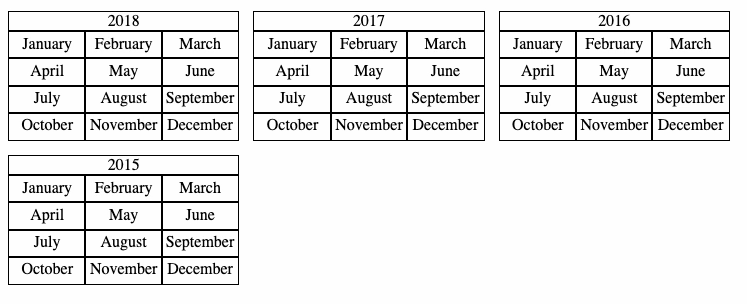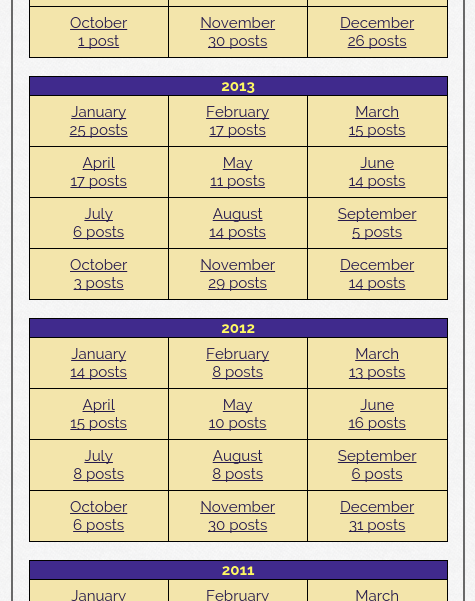Why I make my work calendar public
If you'd like to set up a meeting or call with me, chances are, I've sent you a link to my calendar. It's a public website where you can see when I'm available.
One important note, before we go any further, this public calendar only shows my free/busy status. It doesn't show the names of the appointments, details of people I'm meeting with, locations, or any other data. It's literally just "this is when Terence is busy".

There are two primary reasons why I do this.
Make it easy for people
Arranging meetings over email sucks! Let's meet on Friday? No can do, but I'm available on Monday. Me too, but only after 15:00. Ah, I need to be away at 15:15. Can we do this as a call on Tuesday? Sure. Oh, wait, I'm looking at the wrong week...
Familiar?
This way, I can send an email saying "I'm available Monday between 14:00 - 17:00. But please check my calendar for other availability."
It reduces the burden on both of us.
Embed openness and transparency as a cultural value
My new job is "Head of Open Technology" at NHSX. (This is my personal blog and doesn't represent my employers etc etc.) I advocate for open source, open standards, and open data. I want to embed the values of openness throughout the organisation.
To be clear, I'm doing this for my own benefit. I don't expect everyone else to do this, and I have no power to force anyone to do it.
The calendar feed is available as an open standard (ICS) - but, more importantly, it reinforces the message that public servants can be transparent. We don't need to wait for a Freedom of Information request - we can be open proactively.
Ideally, I'd like a way to retroactively publish some of the high level details - assuming they aren't "Official - Sensitive". Would it be helpful for people to know that I met with Company X to discuss Issue Y? Or that I had a call with Person Z about something?
How to do this
We use GMail at work. Google have a guide on how to make your calendar public
Basically, go to settings and try to figure out where they've moved the option to.
On the other hand...
Here are some good reasons not to do this...
- Normalises surveillance
- Do I want my daily work tracked by anyone?
- Weird psychology of knowing you're being observed
- Am I deliberately putting things in my calendar to make myself look busy and important?
- Security risk
- Is it obvious that my regular 08:30 appointment means I am at a certain location?
- GDPR risk
- What happens if I or Google screw up and other people's personal details are accidentally revealed?
- Hard to decline unwanted meetings
- It's socially acceptable to say to a bore "I'm sorry, I'm too busy for the next 3 weeks" and hope they forget. When your calendar is open, it's harder to evade people.
- Makes me look a bit weird
- I don't know many other people who do this. It's normal to share your calendar within your organisation - but externally?
Would you do this?
I'm curious if I'm the only one experimenting with this sort of openness. When I've sent the calendar link to people, they use it and don't ask questions about it. So it passes some level of social acceptability. It makes managing my time easier.
Is this something you'd be willing to try?





I have used the same technique for some years now, using my personal gmail account.
I embed the calendar inside my own website, allowing me to switch to other platforms without changing the line (https://wiki.alcidesfonseca.com/about/meet/).
As a professor with many different responsibilities, this helps me a lot. First of all, it moves the calendar battleship effort to the other person. I barely have to think about it.
The only downside is that I might like to have full empty day (they are not exactly empty, but days I can devote to research on my own, usually at home). Sometimes I try to ask people to reschedule in order to minimize chaos in my calendar.
I don'think I could do that with my dayjob calendar (even if I wanted to), as we're on Microsoft Office 365 and I'm pretty sure it's all locked down so I couldn't.
It does raise eyebrows that I make my calendar public within the organisation, though. Obviously a few meetings get labelled "private" and things related to supersecret projects are referred to by codename, but almost every appointment in my calendar is public to anyone in any of our offices.
I find it quite curious that so many colleagues find this surprising.
I've kept my calendar online since around 2003, forward events publicly available throughout. Initially it was file-based with a two appointment records per day* in a text file per month, a few years later moving to a MySQL database, where it still resides. Currently at diary.alisonw.uk the domain has changed occasionally depending on which ones I happen to own at the time (!) and though the Internet Archive says it existed in 2005 their earliest copy - looking very similar to the current edition - appears to be from 2007**.In the past it's been useful for family, friends, and lovers to check where I am (I used to travel a lot) and for me when booking appointments / finding out what I'm supposed to be doing. * day, evening ** https://web.archive.org/web/20070320035249/http://diary.alisonwheeler.com/diary/[ Reply to post on shkspr.mobi ]
I don’t think I could because we use Outlook 2016. I can’t share my calendar to my google account so I can view it alongside my home calendar! I have a manually created copy (which I could make open but it wouldn’t show the multiple invites for one day, only what I’d accepted).
Open is great but it needs the culture not just the tech element. My calendar is fully open to all colleagues and yet the number of times I say “pick a free slot” and then someone double books is far too high.
Love this idea but I dont think I could ever do it!
I know a few academics who have done this and found it useful. I don't have a work calendar so it wouldn't be applicable to me.
I remember when @liammax did this years ago when he entered government and I was a journalist wanting to know when I could interview him. I thought it was brilliantly open and honest and was part of what attracted me to GDS
I have done this but the difficulty I find is that meetings have different priorities and movability. I am busy according to my calendar but could be free... for the right person 🙂 Also, you need to remember to schedule travel time when people can't see meeting locations.
have you tried a tool like phw198.github.io/OutlookGoogleC… ? #free #opensource
Hi Terence:
I've just begun an experiment with similar themes - the pros/cons of greater transparency, plus practical considerations on how public servants can do it.
I just published a dataset of my 'hours worked' - that's more about giving people a retrospective sense of how I work, rather than enabling them to interact with me - but I will definitely be looking to see if I can share forward free/busy calendar info - noting there may be some insurmountable technical challenges at my end!
I like your list of reasons not to publish more info, and hope to follow up on this with you if you're happy...?